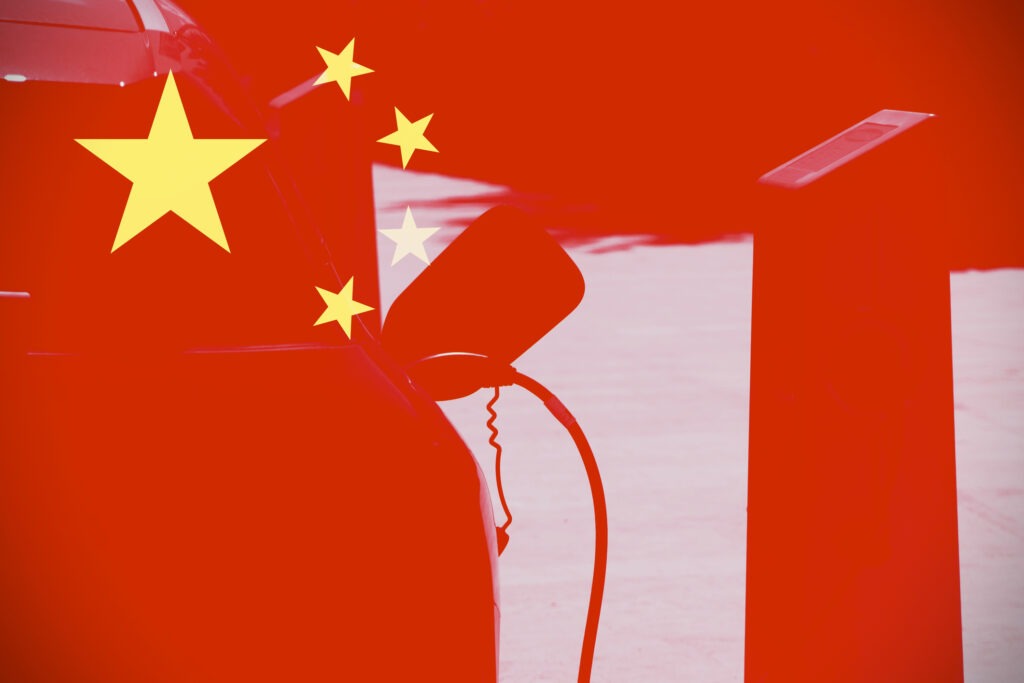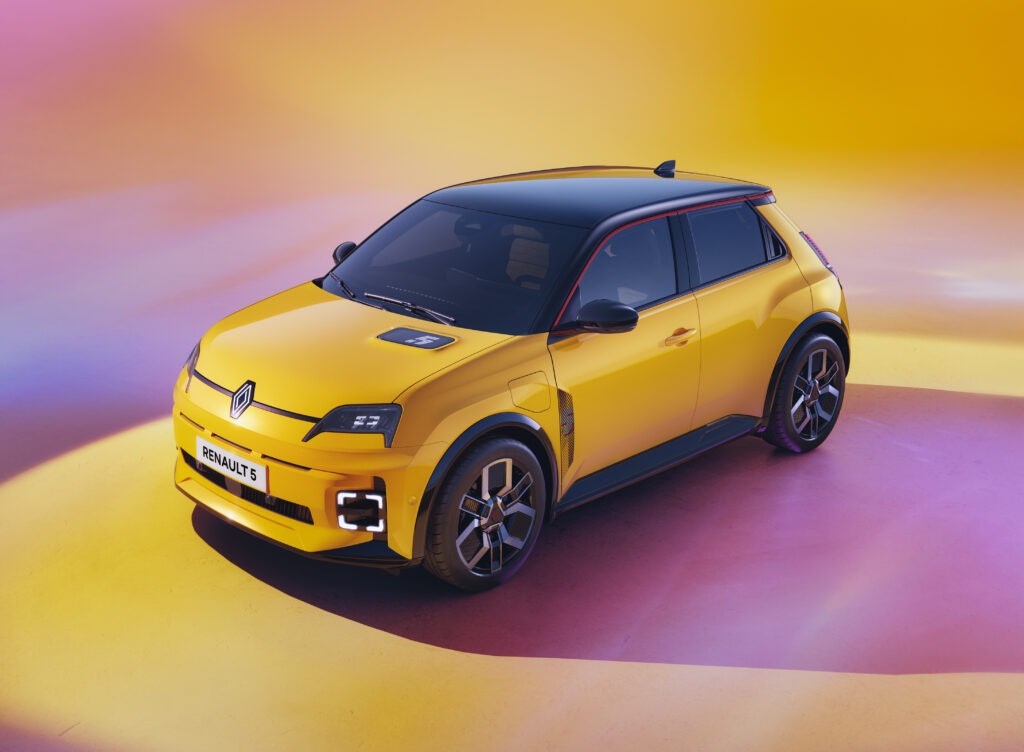On song BYD dominates record-breaking Chinese EV market in September
11 November 2024

Chinese electric vehicle (EV) deliveries soared in September, as BYD continued its domestic market domination. José Pontes, data director at EV Volumes, looks into the figures with Autovista24 special content editor Phil Curry.
Registrations of EVs, including battery-electric vehicles (BEVs) and plug-in hybrids (PHEVs) set a new record in China in September. More than 1.1 million units were delivered in the month, a 51% increase year on year. This is even more spectacular when considering the overall market improvement in the month was just 5%.
Growth came from both powertrain types. BEVs were up 29% in September, to around 644,000 units, while PHEVs jumped 97% to around 479,000 units. This was the fourth month in a row that PHEVs broke their volume record.
September’s strong results saw EVs take a 53% share of the overall Chinese new-car market. BEVs alone accounted for 31% of all deliveries. In terms of EV share, BEVs held 57% of registrations in the month, while PHEVs had 32%. The remaining 11% share was captured by extended-range models (EREVs).
In the first nine months of 2024, around 7.3 million EVs have been delivered to customers, a significant rise over the 5.4 million units that were registered in the same period during 2023.
Looking at the market share between January and September, EVs held 47%, with 27% of this belonging to BEVs. Compared with 12 months prior, the 2023 plug-in share was 37%, with BEVs making up 25% overall. This means that while BEVs have only improved market share by two percentage points (pp), PHEVs are growing faster. The technology’s share increased by around 8pp year on year.
With this growth, the year should end with EVs holding around 50% of the market. This means the push for full electrification by around 2030 is still heading in the right direction.
EVs lead overall
China’s overall best-seller chart saw EVs take the top six places, with the first internal-combustion engine (ICE) model being the Nissan Sylphy. It took seventh with 33,000 units.
With eight plug-in models in the overall top 10, the market was led by electric powertrains. Furthermore, six of these models belonged to BYD, highlighting the carmaker’s domination in its domestic market.
In the EV-only chart, BYD placed 11 models in the top 20, as its run of success continued. This included the top spot for the Song, in its BEV and PHEV versions. The midsize SUV scored 57,022 registrations in September, with 7,024 units coming from the BEV version alone.
The Song is uncontested in the Chinese market, with a gap of over 8,800 units to second place. Whether it will continue to run unchallenged at the head of the table all depends on its competition, including that from internal sources.
However, with competitive pricing, it is still achieving over 50,000 sales a month on average, a necessary threshold.
With 48,202 units delivered in September, the Tesla Model Y took second position in China. This was the model’s best month of the year, and it remains relevant in the country’s market. The brand was the only foreign carmaker to appear in the Chinese top 20, but there may be a challenge ahead. Domestic manufacturers are launching cars that could prove serious competition to both the Tesla Model Y and the Model 3, namely the Nio Onvo L60 and Xpeng Mona M03.
BYD takes charge
Four BYD models filled the next four spots, with the Seagull leading this charge in third. The model posted a year-best performance in September, with 47,915 deliveries. Part of its production is now being diverted to export markets, yet demand is seemingly growing in China.
The Seagull could become the best-selling BYD model globally. The A-segment model is also expected to place second in the 2025 EV table, both globally and in its domestic market
Meanwhile, the Qin L achieved a record result in September, with 39,490 deliveries in fourth. Its production ramp-up is continuing, and it is not hurting registrations of the Qin Plus, on which the BEV is based on.
BYD has succeeded with the Qin and its related models. Combining deliveries of the L, together with the Qin Plus, the Seal 06 and the Destroyer 05, both of which are alternative trim lines, the brand achieved 135,625 registrations in China. This is more than the global sales of the Tesla Model Y.
The Qin Plus ended September in fifth position, with 38,874 units. Of this, 12,213 deliveries were all-electric models. The Seal 06 took sixth place, ending the brands consecutive streak with 37,155 units. BYD also took eighth place with the Yuan Plus (25,576 units) and 10th position with the Song L (25,308 units).
BYD also placed three models in the bottom half of the top 20. The Destroyer 05 ended in 13th (20,106 units), while the Yuan Up took17th (16,018 units) and the Dolphin finished in 18th place (15,290 units).
With over half the table comprised of BYD models, it is clear the brand is successful in its domestic market. It also seems to have settled on the strategy of producing more good-quality models that will sell in lower volumes, to beat the might of Tesla and its two major vehicles.
Notable performances
One of the biggest surprises in September’s top 10 was the presence of the Wuling Mini EV, which took seventh place. With 28,918 registrations, this was the model’s best performance since February 2023. Highlighting Wuling’s strong month in China, the larger Bingo also had a year-best result, with 24,063 units securing 11th place.
Another model on the rise is the Li Auto L6, which was 9th, with a record 25,393 deliveries. The smaller of Li Auto’s lineup is also the brand’s newest model, so the midsize SUV could start to secure a frequent presence in the top 10.
The Tesla Model 3 took 12th position with 23,998 registrations, its best performance in two years. It appears the refreshed model is starting to enjoy some success in China. However, this is still not at the level of its stablemate, the Model Y.
A surprising result was the 16th spot of the Geely Panda Mini, which saw a record 17,551 deliveries in the month. With the good results of the Wuling Mini EV, Changan Lumin (12,284 units), and FAW’s Bestune Xiaoma (9,615 units), small city cars had a great month in September.
Another record performance was produced by the Luxeed S7, which made its debut in the top 20, taking the final place in the table. It secured 14,647 deliveries to hold the spot, as Chery and Huawei’s partnership begins to blossom.
Other noticeable achievements
Outside the top 20, there were several impressive performances, as new and established models fought for position.
Amongst the startup brands, Aion came closest to the top 20, with its Y crossover finishing September ended in 21st position (14,612 units). Geely’s Galaxy E5 crossover also just missed a place in the top 20. Its 14,250 units led it to 22nd in only its second month on the market.
Meanwhile, in its fifth month on the market, Chery’s Fengyun T9 PHEV crossover delivered 11,156 units. Xpeng impressed with its Mona M03, recording 10,023 registrations in its first month on the market.
Finally, the only other foreign brand than Tesla to make a mark in China’s EV market during September was Volkswagen. Its ID.3 had a year-best monthly total of 9,650 units.
Tesla pulls back
September’s results did little to change the year-to-date table at the end of the month. The BYD Song continued to look secure in the top spot, with 467,750 units, over 105,000 deliveries ahead of the BYD Qin Plus in second (362,721 units).
The competition for second and third places is closer, however. The Tesla Model Y is only 25,073 units behind the Qin Plus, with its September tally ending at 337,648 deliveries.
Fourth was held by the BYD Seagull (297,395 units), which lost some ground to the Tesla Model Y in September. The BYD Yuan Plus is over 100,000 deliveries behind in fifth (197,099 units), with the Destroyer 05 in sixth (157,629 units).
The result for the Wuling Mini EV in September saw it jump two places in the annual table. It sat in seventh, with 154,432 registrations. Its progression came at the expense of the Aito M7 (151,378 units) and the BYD Han (145,571 units), which dropped to eighth and ninth respectively.
The Wuling Bingo climbed to 10th position (128,703 units) while the biggest mover was the BYD Qin L, which jumped six positions. The model took 11th place, thanks to 126,265 registrations between January and September.
Meanwhile, Li Auto saw its L6 model gain two spots. It ended September in 14th place across the first nine months of the year, with 114,356 deliveries.
BYD also had cause to celebrate, with the Seal 06 joining the yearly registrations table in 18th position (99,386 units), giving the Chinese carmaker nine models in the top 20, cementing its popularity in its domestic market.




